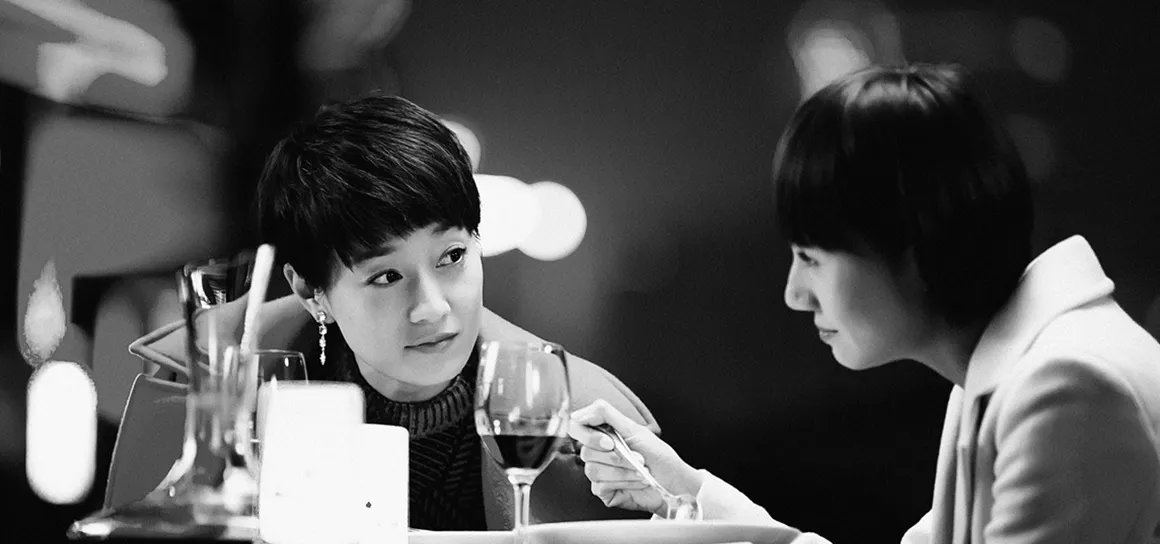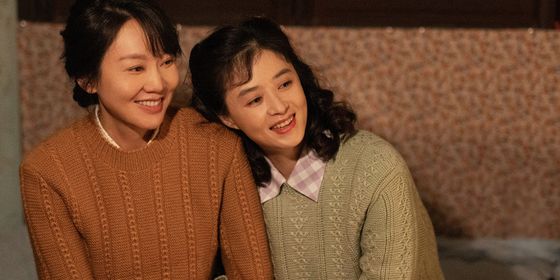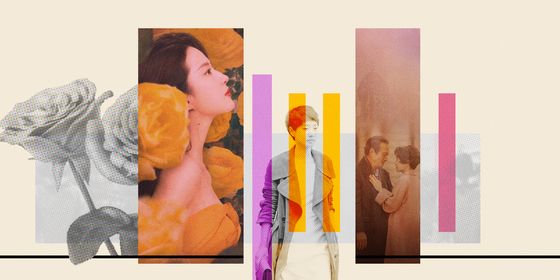A novel about female empowerment devolves into a show about a jealous wife in our final SotW
What can makes a TV series explode in popularity? The answers can range from the excitement of the stories to the excellent acting skills of the cast. But today, many Chinese producers are very likely to respond with a set of initials—IP.
Don’t be confused, it has nothing to do with the Internet Protocol or fusty laws regarding copyright; instead, this use of “intellectual property” refers to a media product—anything from a novel to a video game, online literature to a pop song—that gets adapted into other media forms, often a TV show or movie. Since the product has a built-in fan-base and pop culture presence, producers hope that the adaptation will also be popular.
While the term “IP” is typically associated with adaptations of internet literature, Beijing and Shanghai TV’s highly anticipated summer drama, The First Half of My Life, has a slightly higher-brow origin. It was adapted from a romance novel of the same name by Yi Shu, also known as Isabel Nee Yeh-Su, a popular and influential Hong Kong writer born in 1946. First published in 1982, the novel tells the story of Luo Zijun, a full-time housewife and mother who was completely ignorant about the fact that her husband of 13 years has been cheating on her until the day he asked for a divorce. After her marrige breaks down, Luo sets on the path to becoming an independent woman, takes up a career with the help of her best friend Tang Jing, and eventually to learns to be her own person (but also meet a new guy and win respect from her ex-husband, in keeping with some conventional romance novel themes).
It’s not the most original plotline—yet Yi successfully explored the pressures and choices faced by modern women through two different female characters, housewife Luo and professional woman Tang. Central themes of the novel include the independence of housewives, the challenges of marriage and career, and the self-awareness of women. When the show was debuted on on July 4, audiences, including those who are attracted by Yi Shu’s reputation and found these topics timelier than ever, had high expectations.
Now, 10 days later, the sentiment echoing throughout Douban from viewers is, “Except for the name, the show has nothing to with Yi Shu’s novel.”
It’s hard to know how to start listing the show’s innumerable sins, but the changes to Luo’s character are important to highlight. In the original novel, Luo is a well-educated from a good university, speaks fluent English, and is usually dignified. Though at first unsuspecting of her husband’s infidelity, she took the high road when she discovered the affair and kept her self-respect. When her mother came to her in tears, begging her not to get divorced, she said: “Don’t cry, I will put myself back together.”
In the show, which moved the setting from 1980s Hong Kong to today’s Shanghai, Luo became a paranoid, jealous, superficial harridan, who shouts at her housekeeper, checks her husband’s phone constantly, and is always worried that her husband would leave her. Her whole life seems to be made up of just two things—dolling herself up to please her husband, and saving her marriage at all costs.
In one scene of the novel, when Luo’s daughter accused her of not speaking in a “feminine” enough way to please her husband, she replied: “I am a woman born to a respectable family, and have a dignified way of talking.” But in the show, when Luo breaks into her husband’s office to confront the “mistress” and is accused of being “bad-mannered,” she replies, “Compared with one’s marriage, one’s manner is unimportant.”
Finally, in the novel, Luo started her post-divorce life by finding a low-level job in a small company and working her way up; but in the show, she gets rescued by a new love interest called He Han, a character not in the original novel, who helps Luo solve her problems and gives her emotional support.
“The show put up Yi Shu’s brand, but pushed Jin Dong [actor who plays He Han] to the forefront, putting out the message that ‘no matter how stupid, high-maintenance, and boring I am, there will be an alpha male who lifts me up,’ and ‘the mistress is just low, scheming, and bitchy, so let’s all fight against the mistresses as a society,’” wrote one user who reviewed the show on Douban. And it’s rumored in the later episodes, there will be a love triangle involving Luo, He, and Luo’s best friend Tang.
It’s sad to see such a show, which is supposedly based on a work focusing on self-respect, self-awareness, and self-actualization of women, fall into cliches and stereotypes of women that are prevalent in Chinese pop culture today—a woman’s life is all about men, romance, marriage, and family. Crucially, for the novel, the divorce is simply an event that starts the story, the catalyst Luo’s growth and journey to independence. The show, however, puts the divorce center-stage, paints it as the most catastrophic event of Luo’s life, and focuses on exploring why she got divorced—and unsurprisingly, the producers imply that it’s Luo who brought it on herself with her horrible shrewish ways.
And still the show’s fans say it’s “realistic”: The show currently has a rating of 7.3 on Douban, which is not bad compared with some other shows we’ve reviewed. One has to to ask, is this what Chinese producers and viewers think of women?
It’s never easy to be part of the TV audience in China, nor is being a reviewer. It’s absolutely not a happy thing to be immersed in the endless bad shows, to say nothing of ones with regressive views on society. Since March, Show of the Week has been bringing you our analysis of the latest and hottest offerings on Chinese TV, be they cringeworthy or surprisingly deep, so maybe it’s time for a break—but don’t worry, if there is any excellent shows in the future, or even just bad ones that are actually worth our effort to curse at, we’ll be back.
Cover image from Anhuinews.com.












